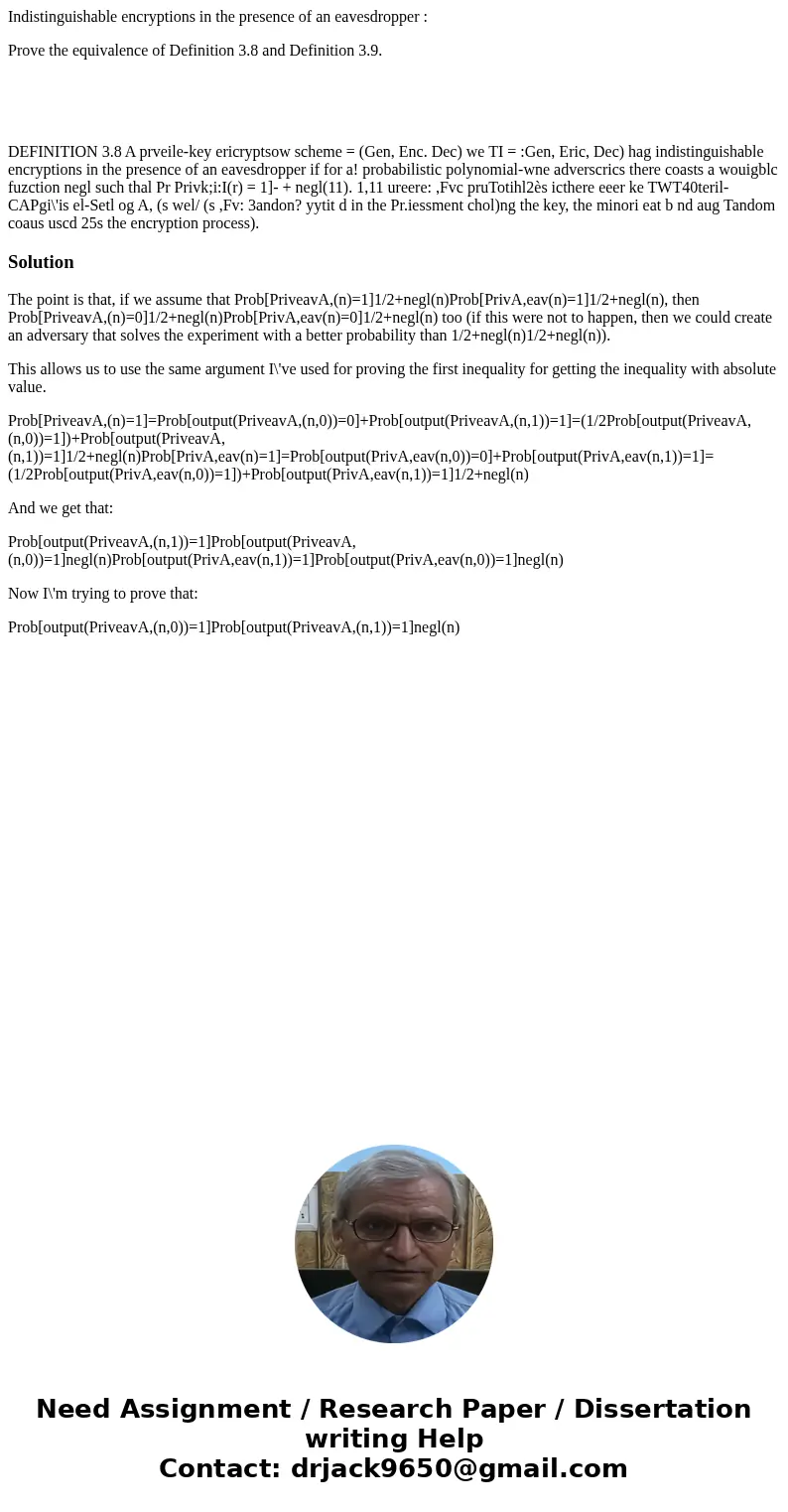Indistinguishable encryptions in the presence of an eavesdro
Indistinguishable encryptions in the presence of an eavesdropper :
Prove the equivalence of Definition 3.8 and Definition 3.9.
Solution
The point is that, if we assume that Prob[PriveavA,(n)=1]1/2+negl(n)Prob[PrivA,eav(n)=1]1/2+negl(n), then Prob[PriveavA,(n)=0]1/2+negl(n)Prob[PrivA,eav(n)=0]1/2+negl(n) too (if this were not to happen, then we could create an adversary that solves the experiment with a better probability than 1/2+negl(n)1/2+negl(n)).
This allows us to use the same argument I\'ve used for proving the first inequality for getting the inequality with absolute value.
Prob[PriveavA,(n)=1]=Prob[output(PriveavA,(n,0))=0]+Prob[output(PriveavA,(n,1))=1]=(1/2Prob[output(PriveavA,(n,0))=1])+Prob[output(PriveavA,(n,1))=1]1/2+negl(n)Prob[PrivA,eav(n)=1]=Prob[output(PrivA,eav(n,0))=0]+Prob[output(PrivA,eav(n,1))=1]=(1/2Prob[output(PrivA,eav(n,0))=1])+Prob[output(PrivA,eav(n,1))=1]1/2+negl(n)
And we get that:
Prob[output(PriveavA,(n,1))=1]Prob[output(PriveavA,(n,0))=1]negl(n)Prob[output(PrivA,eav(n,1))=1]Prob[output(PrivA,eav(n,0))=1]negl(n)
Now I\'m trying to prove that:
Prob[output(PriveavA,(n,0))=1]Prob[output(PriveavA,(n,1))=1]negl(n)

 Homework Sourse
Homework Sourse